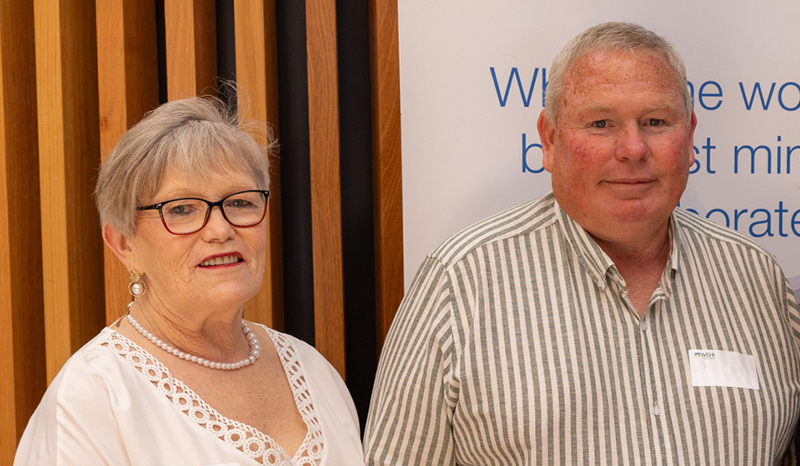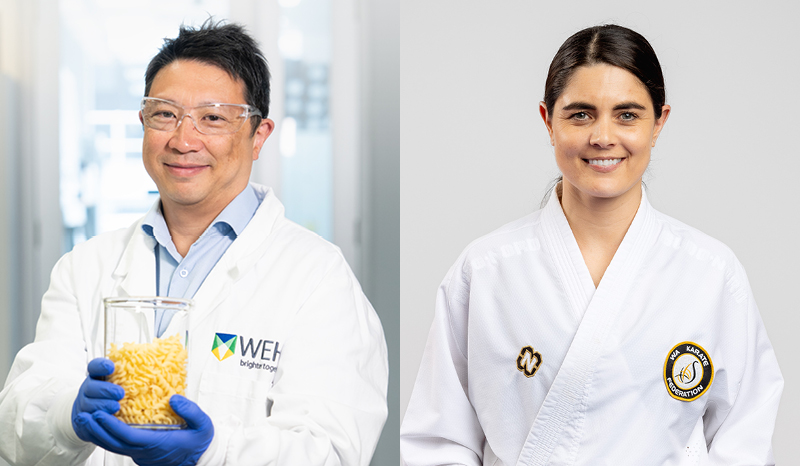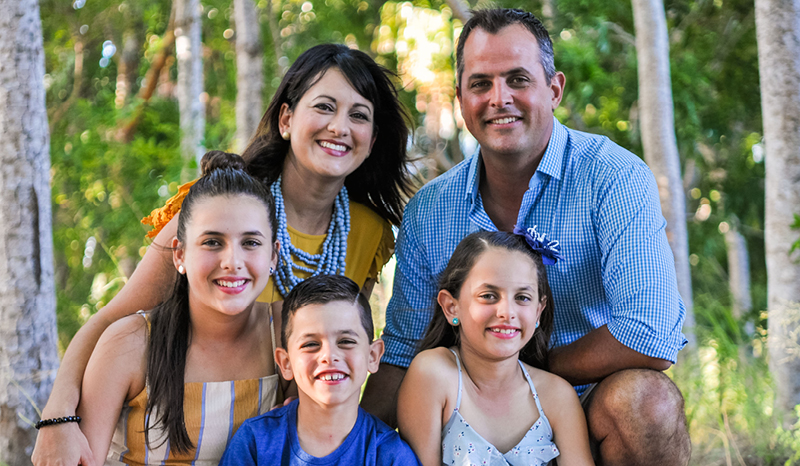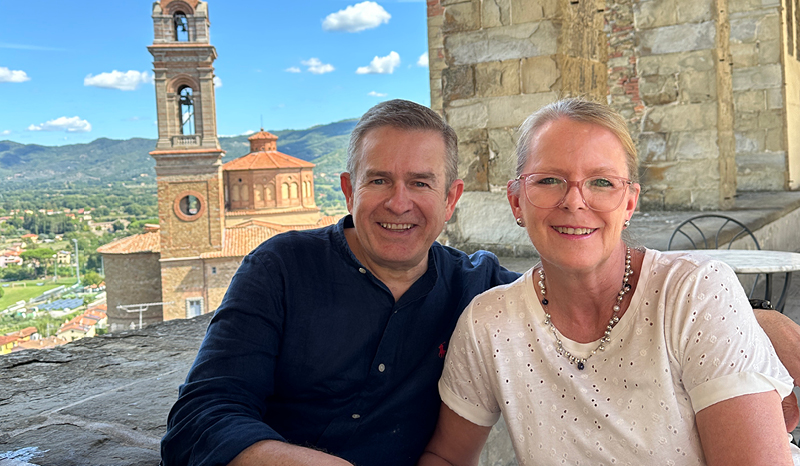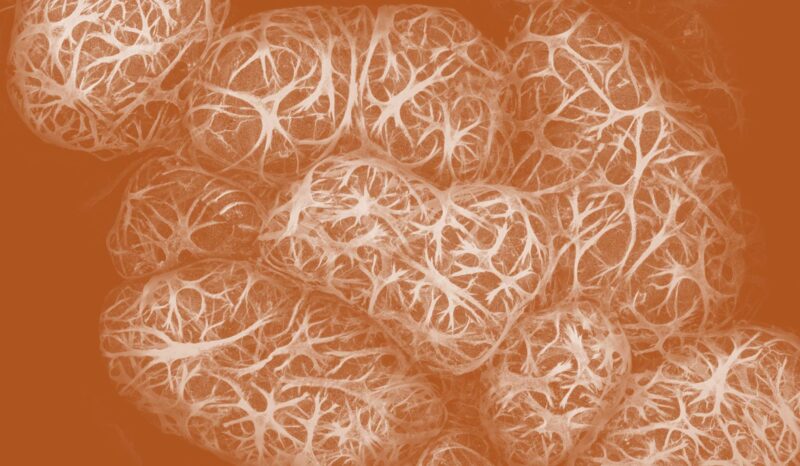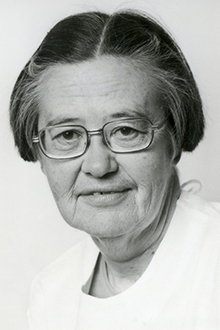 It is with great sadness that we farewell Dr Margaret Holmes, a loyal alumna and friend of the Institute, who passed away on 28 November 2016.
It is with great sadness that we farewell Dr Margaret Holmes, a loyal alumna and friend of the Institute, who passed away on 28 November 2016.
Margaret was closely associated with the Walter and Eliza Hall Institute for almost 80 years, first as an employee and, since her retirement, a mentor for staff as well as a wonderful friend for many.
In 1938 Margaret joined the Institute as a school leaver, one of only 12 staff. In a male-dominated academic world, Margaret had the talent and tenacity to pursue a scientific education while she worked. She later earnt a PhD and a scholarship to undertake research in Europe.
She was recruited back to the Institute in 1958 by then director Sir Frank Macfarlane Burnet, where she remained until her retirement in 1986. In this period she oversaw the expansion of staff and infrastructure that underpinned a golden era of discovery at the Institute. Margaret was also an important scientific contributor to many landmark research achievements in understanding the causes and treatment of autoimmune conditions.
Margaret’s expertise in animal husbandry was particularly notable, and she oversaw the establishment of the Clive and Vera Ramaciotti Laboratories in 1970, a pioneering facility that continues today. Becoming the Institute’s General Manager in the late 1970s, Margaret was an integral member of the design and development of our new Parkville building that was opened in 1985 and is still in use today.
In 1986 and at the age of 65 – the age of compulsory retirement – Margaret left the Institute as a staff member, but remained a friend for the next three decades.
Institute director Professor Doug Hilton said Margaret was a pioneer for the women who followed her in biomedical science in Australia, and made many important contributions to the field. “It was Margaret’s dedication to exacting standards that set up the systems that continue to ensure the Institute’s research is always conducted at the highest level,” he said.
“On a personal note, I am among many with wonderful memories of Margaret, who was feisty and indomitable. She was ferocious in her vigilance, and fearless in her commitment to all those in her care,” Professor Hilton said.
In honour of Margaret’s leadership and talents, the Institute now awards an annual Margaret Holmes Emerging Leader prize, recognising a younger staff member who has made significant contributions to the Institute, and has demonstrated the potential for leadership and continuing service.


 It is with great sadness that we farewell Dr Margaret Holmes, a loyal alumna and friend of the Institute, who passed away on 28 November 2016.
It is with great sadness that we farewell Dr Margaret Holmes, a loyal alumna and friend of the Institute, who passed away on 28 November 2016.